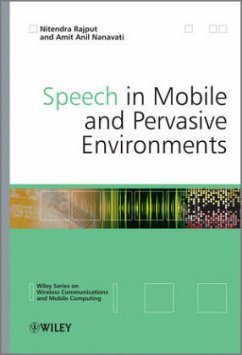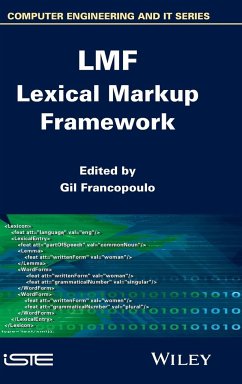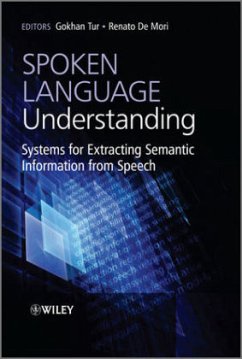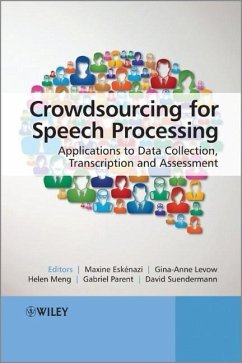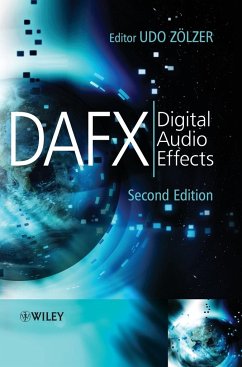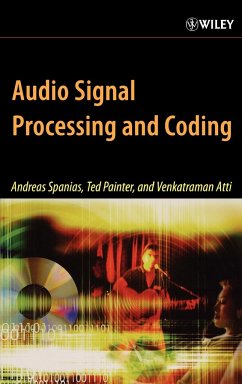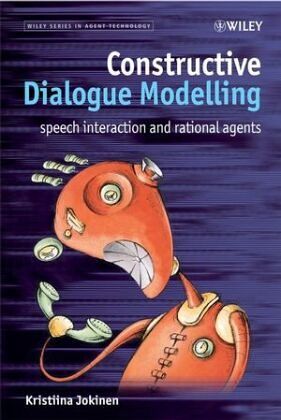
Constructive Dialogue Modelling
Speech Interaction and Rational Agents

PAYBACK Punkte
53 °P sammeln!
Presents a guide to spoken dialogue technology and current research trends. Provides an overview of human factors in dialogue systems and delivers a new metaphor for human computer interaction, computer as agent. Explains the architecture of dialogue systems using examples from systems such as Interact, DUMAS, QA and Eliza and Alice.
Dialogue management technology has developed rapidly over the years resulting in real-time applications like telephony directories, timetable enquiries, and in-car applications. However, the current technology is still largely based on models that use rigid command language type interactions, and the users need to adapt their human communication strategies to the needs of the technology. As an increasing number of interactive ubiquitous applications will appear, challenges for interaction technology concern especially natural, more human-friendly communication. Recent research has focused on developing speech-based interactive systems that aim to increase the system's communicative competence. By including aspects of interaction beyond simple speech recognition and question-answer based interaction, applications with more conversational interfaces have become possible. New dialogue management technology needs to address the challenges in human-technology interaction, so that smart environments should not only enable user-controlled command interfaces but equip applications with a capability that affords easy and friendly interactions with the user.
Dialogue Modelling: Speech Interaction and Rational Agents provides an overview of the current dialogue technology and research trends in spoken dialogue systems, presenting a coherent perspective of AI-based cooperative interaction management. The book complements existing research regarding human-computer interfaces, speech and language technology, and communication studies in general, bringing different view-points together and integrating them into a single point of reference.
Constructive Dialogue Modelling:
Presents a guide to spoken dialogue technology and current research trends.
Provides an overview of human factors in dialogue systems and delivers a new metaphor for human-computer interaction and computer as agent.
Explains the architecture of dialogue systems using examples from systems such as Interact and DUMAS
Offers a comprehensive overview of original research into the new trends in speech dialogue technology in light of innovations such as ubiquitous computing.
This book will provide essential reading for industrial designers and interface engineers, university researchers and teachers, computer scientists, human communication researchers, speech and language technologists, cognitive engineers/cognitive scientists, as well as social and media researchers, and psychologists. Advanced students and researchers in computer science, speech and language technologies, psychology and communication research will find this text of interest.
Dialogue Modelling: Speech Interaction and Rational Agents provides an overview of the current dialogue technology and research trends in spoken dialogue systems, presenting a coherent perspective of AI-based cooperative interaction management. The book complements existing research regarding human-computer interfaces, speech and language technology, and communication studies in general, bringing different view-points together and integrating them into a single point of reference.
Constructive Dialogue Modelling:
Presents a guide to spoken dialogue technology and current research trends.
Provides an overview of human factors in dialogue systems and delivers a new metaphor for human-computer interaction and computer as agent.
Explains the architecture of dialogue systems using examples from systems such as Interact and DUMAS
Offers a comprehensive overview of original research into the new trends in speech dialogue technology in light of innovations such as ubiquitous computing.
This book will provide essential reading for industrial designers and interface engineers, university researchers and teachers, computer scientists, human communication researchers, speech and language technologists, cognitive engineers/cognitive scientists, as well as social and media researchers, and psychologists. Advanced students and researchers in computer science, speech and language technologies, psychology and communication research will find this text of interest.




